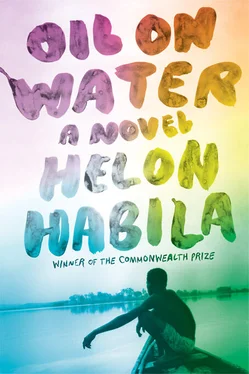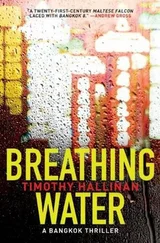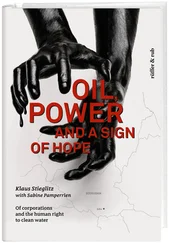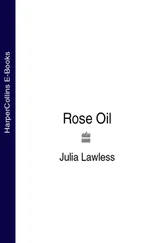— We’re reporters.
I was sure Zaq, if he could speak at all after that fall into the water, was telling them the same thing in the other boat.
— You can explain yourself to the Major.
After about an hour we saw stunted palm trees on the horizon. They seemed to be jetting out of the water, and behind them the land appeared a few seconds later. A sudden and unexpected place, with the water circling it like a moat, and you didn’t see it till you were practically on top of it. A thin trail of mangroves and palm trees on marshy ground led away from the water to more solid ground and a footpath inland. More soldiers appeared behind trees and out of dugouts and behind sandbags, guns raised, eyes fixed on us as our escorts bound our hands behind our backs before leading us off the boats. We were taken down a path that meandered between the trees, often disappearing beneath thick grass; as we walked I often had to lean against Zaq to stop him from falling to the muddy ground. When I tried to explain to a sergeant that Zaq was not feeling well, he raised his gun at me.
— Keep walking.
At last we arrived at a camp: a few sheds and huts arranged in a square formation around a central clearing where three low and leafy trees grew. We sat under the trees and watched the Sergeant make a call on his radio, not saying much, occasionally grunting a yes and a no, then finally, — Over. He put down his gun and waved impatiently to one of the men, who stepped forward and untied us.
— So, you are the journalists. We have been expecting you.
Zaq started to stand up, then sank back to the ground, falling flat on his face. I rushed forward and tried to help him up, but he slumped back again.
— What’s wrong with him?
— He needs to see a doctor.
The soldier looked at Zaq, then at me.
— Well, the Major said to treat you well till he comes. You’re lucky we have a medic here. Just don’t try to escape. If you do, you’ll be shot.
I looked at him, trying to determine if he was joking. Escape how, to where? But his red eyes showed no trace of merriment.
— We can’t escape without our boat.
He motioned to one of the soldiers. — Take them to the doctor. No, just you two.
— The old man and the boy work for us. They’re our guides. .
— They will be fine. Go.
HE WAS WEARING military fatigues, so I asked him if he was also a soldier. He laughed.
— A soldier? No, no, just a doctor. A bloody civilian like you.
His voice was thin and slow and precise.
— Dr. Dagogo-Mark. Call me “Doctor”; everybody does.
His shed was a little removed from the other huts; its large doors and windows made it airy and cool; in a corner was a table carrying a few tins of medicine, carefully labeled. Near the table was an open wooden chest in which I could see a jumble of medicine bottles and syringes and various containers. On another table behind the chest was what looked like a titration stand with tubes hanging from it, while under it was a burner connected to a gas cylinder. An old and dirty white laboratory jacket covered the Doctor’s fatigues; the jacket was a size too small for him and stretched tightly across the shoulders. Occasionally a foul stench from the faraway swamps blew in through the open window on the back of a sporadic and wispy wind. Zaq lay on his back on a cot on the floor, knocked out by the injection the Doctor had given him. Beside him were two other cots with soldiers sprawled out on them, still dressed in their camouflage uniforms and boots, their eyes dulled by fever. The Doctor had looked at Zaq and asked me how long he had been ill.
— Well, on and off for about twelve days now.
He had taken blood and urine samples and said he’d work on them and let us know what was wrong by tomorrow. And then he had knocked Zaq out with the injection. I was seated in a wooden chair close to Zaq, and it was all I could do to keep my eyes open. I wanted to ask the Doctor about this place, about the Major who seemed to be the man in charge, but my mouth remained heavy and stiff, so I let my mind wander. It wandered all the way back to the day, at the office, when I raised my hand and volunteered to come on this assignment.
The invitation — written in black inkon a ten-inch-square handbill — to interested and experienced reporters to go to interview the kidnapped British woman had hung unanswered for two days on the notice board next to my editor’s office, and now he was going to take it down, but first he wanted to make a speech. The editor, Dan Itega, a man in his fifties who for some reason disliked me on sight, loved making speeches.
The Reporter was the third-largest paper in Port Harcourt, with lots of experienced reporters, and ordinarily such an important assignment wouldn’t have come my way: I was a mere cub reporter, and technically not even that anymore because the editor had unceremoniously transferred me to the photography department. But fate had started its work in my favor two weeks earlier when two reporters, Max Tekena and Peter Olisah, were killed after answering a similar invitation. Olisah worked for a Port Harcourt evening paper called the Voice —I had never met him — but Tekena was my colleague. He was a star.
IT IS MY FIRST WEEK in Port Harcourt after graduating and I am about to be interviewed for a job. I am standing in front of the gates at the Reporter . I am wearing a jacket, my only jacket, and underneath my shirt is properly tucked in; flanking me on each side is another applicant. We have survived a rigorous pruning process from a list of over fifty and now our fate is in the hands of the proprietor, known by all his employees as the Chairman. Only one of us will make it. Now we are in the Chairman’s anteroom, and we have been seated here for hours, looking up hopefully whenever the door to the office opens. This is our third day of waiting. Subeditors sit with us waiting to go in to consult with him over the next day’s edition. A young secretary sits behind a typewriter, a cravat fashionably tied around his collar, his face fresh and alert. Ah, how accomplished he must be to work directly for the Chairman. He must be the best among the best. Max Tekena sits to my right: he is a talkative boy of about my age and loves to reel off his CV — he has been an apprentice on three papers, one of them a Lagos paper, and he is sure this one will be a shoo-in for him. He is tall and lanky, his eyes are alert and restless, he has a way of licking his lips as he speaks, a born predator. The other applicant is a girl: she is quiet, but apparently more accomplished than me. She has her own blog and can talk about complex trends in fashion and knows who is sleeping with whom in Nollywood and Hollywood. Her list of sources and contacts and informants is endless, and she is the prettiest thing I have ever seen. How can the Chairman resist her? We all clutch our portfolios in our sweaty hands. Mine contains the few pieces I did at journalism school, and my single claim to fame: my online article about the oil fire that consumed my little town, killing and maiming a quarter of the population, including my sister and my best friend’s father. My heart is beating fast and for some reason I am sure I will never get the job, but I am willing to stick it out with the others. To wait them out. We have been coming to the office for three days without seeing him and it seems he is testing us to see who will give up first. Patience, after all, is a foremost virtue in journalism — Zaq told me that at Bar Beach in Lagos.
And then he steps out of his office with an entourage of three behind him and he looks at us and turns to his secretary with the blue-and-white cravat and says, Who are they, what are they doing here in my anteroom?
Читать дальше












